Product-Sense me to Death

Let’s talk for a second about ‘product sense interviews’. I know it’s not a new concept, but since I started engaging with various groups and forums on social networks due to my new business, I’ve been hearing about it a lot.
Usually it’s coming from a young product manager who is looking for a job and seeks advice on how to prepare for these types of interviews.
Now, I will provide my own advice on how to tackle those later in this post – but the main chunk of this post is addressed towards the interviewers who are fans of product-sense interviews with the goal of convincing them that these questions are pointless.
But as always – first things first. Let’s align all readers on what I am talking about.
What is a product sense interview?
Here are some definitions and descriptions I gathered from the web:
“Product sense interview questions are designed to showcase your creativity, empathy, and problem-solving skills.” (reference)
“Product sense questions are common in product management interviews. They are designed to assess a candidate’s ability to think critically and strategically about a product, its features, and how it fits into the market.” (reference)
Essentially, we’re talking about interview questions in the following form:
- “If you worked at Netflix, how would you improve the product?”
- “What is your favorite product and why?”
- “How would you monetize a popular free-to-use mobile app without significantly impacting the user experience?”
- “How would you improve iOS when considering the market in 5 years?”
And now that we explained what product-sense is and gave some examples to relevant interview questions – it’s time to proceed to the really interesting part:
What’s wrong with those types of questions?
Well, in general – nothing really. Those are all interesting questions and I’d be delighted to hear some answers to them.
However, when it comes to interviewing product managers, who are not product leaders – I claim that this is just a waste of your precious interview time.
Why do I say that?
Several reasons. Let’s go over them one by one:
These questions have very little to do with what the product manager will do on his/her day-to-day
I assume you’ll all agree that the goal of the hiring process is to find the candidate that will have the best performance on the specific role you are hiring among all other candidates.
If that’s the goal – then why ask the candidate about things that they won’t actually do 99% of their time?
It’s all very sexy to think that product managers sit on their chairs all day long and focus their brain power on what features are missing in their product and how they can suggest creative features to help their users.
But the sad truth is that the features you need to work on are already known 99% of the time. You already have a huge backlog of features that your customers and/or peers have asked for. Most of the time – it’s therefore a matter of properly prioritizing and/or executing on these features.
I don’t want to give the notion that creativity is not a required quality for a product manager. On the contrary – thinking out of the box and being creative are essential qualities of product managers. However, in your day-to-day work, your creativity will likely be aimed towards:
- Navigating office politics
- Getting buy-ins and alignment for your initiatives
- Improving processes
- Resolving conflicts in priority while keeping all conflicting sides happy
- Getting to the bottom of a real pain while interviewing a customer
And so forth…
What’s common to all challenges listed above? They all involve some sort of communication. And that’s fine – because as I always say – 90% of the product manager’s work involves some sort of communication.
If you do need to come up with a brilliant new feature – your brain power is usually not the way to go.
If your product fails to win the market and you do need to think of a killer feature or a capability the process you need to follow is quite methodological
First, you need to figure out if it’s even a problem in your product or not. It could be a marketing problem or a sales problem. You need to understand if it’s an acquisition, activation or a retention problem and proceed based on that.
Or, in other words, you need to understand what’s standing in your way from reaching a product market fit.
Many times, you’ll need a data-driven approach here, sorting through all existing signals – customers requests, customer interviews, users behavior as it stems from the data analytics and market trends. Maybe even a proper discovery process is due…
(If it interests you – you can read my posts series about reaching product market fit here, here and here.)
What I’m trying to say here is that there are known approaches you can take for understanding what’s missing in your product. It rarely involves brilliant ideas that suddenly emerge while you’re simply sitting and thinking hard.
Hence, how are you supposed to know what’s missing in Netflix without having access to Netflix data and/or having the opportunity to conduct these processes properly?
Is there any proof out there that these questions properly correlate with the product manager’s success at their role?
I haven’t seen any such piece of data. Did you?
I don’t wish to mention any specific companies here as I am not a fan of shaming. Rather, I invite you to do your own observations and ask yourself whether the companies which are highly associated with these types of questions have indeed a strong record of releasing wonderful products to the market?
My personal observation is that such correlation doesn’t exist at all.
Ok, so I am looking to expand my team by hiring some new product managers. What should I focus on instead?
A great question.
In short, rather than trying to find the next Steve Jobs, I’d focus my questions around the true aspects of the job. Hence:
- How are the verbal and written communication skills of this person?
- Can this person dig deep enough and identify true users/customers’ pains?
- Can this person successfully take a feature from ideation to production?
- Can this person lead without a formal authority?
- Can this person manage her/his time successfully and focus on the tasks that move the needle?
- Does this person have any analytical skills?
So we are talking about a person who knows how to identify where the ‘gold’ is in terms of users/customers pains, prioritize the right features according to this and execute effectively by taking these features successfully to production.
A few years ago I wrote a post about what I think a product interview should look like. It’s still relevant today and you can find it here.
So dear interviewers – to summarize – if you don’t wish to disqualify candidates for the wrong reasons – I strongly recommend that you skip these product-sense questions and focus on the questions that will properly assess your candidates skills.
And now to the dear candidates:
How should you prepare for these product-sense questions?
Well, the short answer is that the web is full of videos and tips on how to address those. I’m not going to repeat all these frameworks and methods.
I will tell you what I would do if I were you:
- Always focus on the users or customers’ pains at the first step. This is what matters and this is where the value is.
- Verbally describe your thought process.
- Focus on the process for getting the answers you need rather than coming up with ‘feature ideas’ (solutions) that just came up off your head. Hence, if someone asks you how you’d improve a product – tell them what data points and signals you would assess and what are the steps you’d take based on top for understanding where the value is and how to properly choose these features.
- If someone forces you to suggest actual features – then make your best guess, but add to that this is not the approach you’d take in real life. Rather, you’d focus on a data-driven process.
If someone disqualifies you based on this approach then I’m not sure it’s someone you’d like to work for anyway. I am saying this because the approach I’ve outlined is the best approach I know of for finding the real gold.
Good luck!
